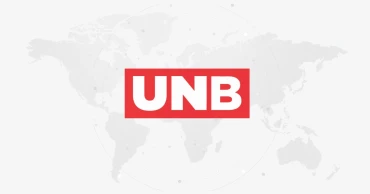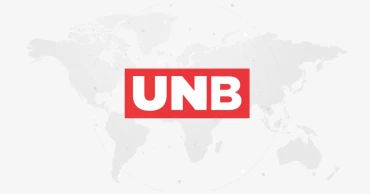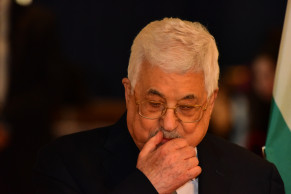presidential elections
US takes down Iran-linked news sites, alleges disinformation
American authorities seized a range of Iran’s state-linked news website domains they accused of spreading disinformation, the U.S. Justice Department said Tuesday, a move that appeared to be a far-reaching crackdown on Iranian media amid heightened tensions between the two countries.
The Justice Department said 33 of the seized websites were used by the Iranian Islamic Radio and Television Union, which was singled out by the U.S. government last October for what officials described as efforts to spread disinformation and sow discord among American voters ahead of the 2020 presidential election. The U.S. says three other seized websites were operated by Kata’ib Hizballah, which more than a decade ago was designated a foreign terrorist organization.
The website domains are owned by U.S. companies, but despite the sanctions, neither the IRTVU nor KH obtained the required licenses from the U.S. government before using the domain names, according to the Justice Department.
Read: Hard-line judiciary head wins Iran presidency in low turnout
The Justice Department announcement came hours after the Iranian state-run news agency IRNA revealed the U.S. government seizures without providing further information.
The takedowns come as world powers scramble to resurrect Tehran’s tattered 2015 nuclear deal and just days after the election victory of Iran’s hard-line judiciary chief, Ebrahim Raisi. On Monday, Raisi, known for his hostility to the West, staked out a hard-line position in his first news conference. He ruled out the possibilities of meeting with President Joe Biden or negotiating over Tehran’s ballistic missile program and support for regional militias — concerns the Biden administration wants addressed in future talks.
Relations between Iran and the U.S. have deteriorated for years following President Donald Trump’s withdrawal from Tehran’s nuclear deal and the return of devastating sanctions on the country. That decision has seen Iran, over time, gradually abandon every limit on uranium enrichment. The country is now enriching uranium to 60%, its highest level ever, though still short of weapons-grade levels.
Iran provides support to militant groups in the region, such as Lebanon’s militant Hezbollah and Yemen’s Houthi rebels, as it seeks to wield its influence far afield and counter its foes.
On Tuesday, visiting the addresses of a handful of sites, including Iran state television’s English-language arm Press TV, Yemeni Houthi-run Al-Masirah satellite news channel and Iranian state TV’s Arabic-language channel, Al-Alam, produced a federal takedown notice. It said the websites were seized “as part of law enforcement action” by the U.S. Bureau of Industry and Security, Office of Export Enforcement and the Federal Bureau of Investigation.
Read: Iran elects hard-liner Raisi as new president
The U.S. government also took over the domain name of the news website Palestine Today, which reflects the viewpoints of Gaza-based Islamic militant groups Hamas and Islamic Jihad, redirecting the site to the same takedown notice.
Press TV, launched in June 2007, is the state-run Islamic Republic of Iran Broadcasting’s English-language service. Its Iran-based website, PressTV.ir, was not affected.
Most of the domains seized appeared to be “.net,” “.com” and “.tv” domains. The first two are generic top-level domains as opposed to country-specific domains, while “.tv” is owned by the Pacific island nation of Tuvalu but administered by the U.S. company Verisign. Seizing a domain on a major country-specific top-level domain such as Iran’s “.ir” would be apt to produce widespread international condemnation as a violation of sovereignty.
It’s not the first time that the U.S. has seized domain names of sites it accuses of spreading disinformation.
Last October, the Department of Justice announced the takedown of nearly 100 websites linked to Iran’s powerful Revolutionary Guard. The U.S. said the sites, operating under the guise of genuine news outlets, were waging a “global disinformation campaign” to influence U.S. policy and push Iranian propaganda around the world.
Yemen’s Houthi rebel group announced that its Al-Masirah satellite news channel went offline Tuesday without prior notice. It said the channel would continue in its mission of “confronting the American and Israeli acts of piracy against our nation, by any means.”
Responsibility for providing name service for the domain name presstv.com was apparently switched to an Amazon name server on Tuesday at mid-afternoon European time, said internet infrastructure expert Ron Guilmette. Cybersecurity researchers at RiskIQ found a total of 24 seized sites sharing the same Amazon name server.
Read: Moderate Iran candidate concedes win by judiciary chief
There are no private television or radio stations in Iran. Satellite dishes, while widespread, also are illegal. That leaves IRIB with a monopoly on domestic airwaves.
Marzieh Hashemi, a prominent Press TV anchor who, in 2019, was arrested as a material witness in an unspecified criminal case and has appeared before a grand jury in Washington, told The Associated Press that the channel was struggling to “figure out the reasons” for the seizure.
While airing in Iran, Press TV focuses predominantly on international affairs through the lens of how leaders in the Islamic Republic see the world. Fierce criticism of British and American foreign policy is common. Since the 1979 Islamic Revolution, IRIB has been in the hands of hard-liners who back Iran’s government.
Press TV has previously run into trouble with Western authorities over its reporting. The Anti-Defamation League has criticized the channel as “one of the world’s leading dispensers of conspiratorial anti-Semitism in English.”
4 years ago
Hard-line judiciary head wins Iran presidency in low turnout
Iran’s hard-line judiciary chief won a landslide victory in the country’s presidential election, a vote that both propelled the supreme leader’s protege into Tehran’s highest civilian position and saw the lowest turnout in the Islamic Republic’s history.
The election of Ebrahim Raisi, already sanctioned by the U.S. in part over his involvement in the mass execution of thousands of political prisoners in 1988, became more of a coronation after his strongest competition found themselves disqualified from running in Saturday’s vote.
That sparked calls for a boycott and many apparently did stay home — out of over 59 million eligible voters, only 28.9 million voted. Of those voting, some 3.7 million people either accidentally or intentionally voided their ballots, far beyond the amount seen in previous elections and suggesting some wanted none of the four candidates.
Read: Iraq Interior Ministry: 82 killed in Baghdad hospital fire
Iranian state television immediately blamed challenges of the coronavirus pandemic and U.S. sanctions for the low participation. But the low turnout and voided ballots suggested a wider unhappiness with the tightly controlled election, as activists criticized Raisi’s ascension.
“That Ebrahim Raisi has risen to the presidency instead of being investigated for the crimes against humanity of murder, enforced disappearance and torture is a grim reminder that impunity reigns supreme in Iran,” Amnesty International’s Secretary-General Agnes Callamard said.
In official results, Raisi won 17.9 million votes overall, nearly 62% of the total 28.9 million cast. Had the voided ballots gone to a candidate, that person would have come in second. Following Raisi was former hard-line Revolutionary Guard commander Mohsen Rezaei with 3.4 million votes.
Former Central Bank chief Abdolnasser Hemmati, a moderate viewed as a stand-in for outgoing President Hassan Rouhani in the election, came in third with 2.4 million votes. Amirhossein Ghazizadeh Hashemi was last with just under 1 million.
Interior Minister Abdolreza Rahmani Fazli, who gave the results, did not explain the high number of voided ballots. Elections in 2017 and 2012 saw some 1.2 million voided ballots apiece. Iran does not allow international election observers.
While Iran does not have mandatory voting, those casting ballots do receive stamps showing they voted on their birth certificates. Some worry that could affect their ability to apply for jobs and scholarships, or to hold onto their positions in the government or security forces.
Read:A growing challenge for Iraq: Iran-aligned Shiite militias
Abroad, Syrian President Bashar Assad immediately congratulated Raisi’s win. Iran has been instrumental in seeing Assad hold onto the presidency amid his country’s decade-long grinding war.
Separate congratulations came from Dubai’s ruler Sheikh Mohammed bin Rashid Al Maktoum, who also serves as the vice president and prime minister of the hereditarily ruled United Arab Emirates. The UAE has been trying to de-escalate tensions with Iran since a series of attacks on shipping off its coast in 2019 that the U.S. Navy blamed on Iran.
Also congratulating Raisi was Oman, which has served as an interlocutor between Tehran and the West.
Iran’s archrival Israel, however, slammed the new leader. Foreign Minister Yair Lapid called Raisi “the butcher of Tehran” and described him as responsible for the deaths of “thousands of Iranians.”
Rouhani, who in 2017 dismissed Raisi as an opponent in his reelection as someone only knowing about “executions and imprisoning” people, met the cleric Saturday and congratulated him.
“I hope I can respond well to the people’s confidence, vote and kindness during my term,” Raisi said.
Read: Pope visits Iraq's war-ravaged north on last day of tour
Since the 1979 Islamic Revolution overthrew the shah, Iran’s theocracy has cited voter turnout as a sign of its legitimacy, beginning with its first referendum that won 98.2% support that simply asked whether or not people wanted an Islamic Republic. Some, including former hard-line President Mahmoud Ahmadinejad, called for a boycott of Saturday’s election.
A constitutional panel under Khamenei disqualified reformists and those backing Rouhani, whose administration reached the 2015 nuclear deal with world powers. The accord disintegrated three years later with then-President Donald Trump’s unilateral withdrawal of America from the agreement.
Raisi’s election puts hard-liners firmly in control across the government as negotiations in Vienna continue to try to save a tattered deal meant to limit Iran’s nuclear program, at a time when Tehran is enriching uranium at its highest levels ever, though still short of weapons-grade levels. Tensions remain high with both the U.S. and Israel, which is believed to have carried out a series of attacks targeting Iranian nuclear sites as well as assassinating the scientist who created its military atomic program decades earlier.
Raisi also has become the first serving Iranian president sanctioned by the U.S. government even before entering office over his involvement in the 1988 mass executions, as well as his time as the head of Iran’s internationally criticized judiciary — one of the world’s top executioners.
The State Department said it hoped to build on the Vienna talks “regardless of who is in power.” However, it noted the election’s lowest-ever turnout and described Iranians as being “denied their right to choose their own leaders in a free and fair electoral process.”
“Iran’s restrictions on free expression and association fundamentally compromise the electoral environment,” the State Department said. “Hundreds of political prisoners remain jailed, and we join the international community in calling for their release.”
Read:A timeline of disaster and displacement for Iraqi Christians
But U.S. hopes for a longer and stronger nuclear deal from the Vienna talks may be in question.
“Raisi’s ambivalence about foreign interaction will only worsen the chances that Washington could persuade Tehran to accept further limits on its nuclear program, regional influence, or missile program, at least in Joe Biden’s first term in office,” wrote Henry Rome, an analyst at the Eurasia Group who studies Iran.
Iranian presidents have almost all served two four-year terms. That means Raisi could be at the helm what could be one of the most crucial moments for the country in decades — the death of the 82-year-old Khamenei. Speculation already has begun that Raisi might be a contender for the position, along with Khamenei’s son, Mojtaba.
4 years ago
Poland to hold presidential elections in May
The speaker of the Polish Sejm (lower house) announced on Wednesday that the first round of presidential elections in Poland will take place on May 10, and if a second round is needed, it will happen on May 24.
6 years ago
Fatah party announces Abbas its only candidate in presidential elections
Palestinian President Mahmoud Abbas is Fatah's "sole candidate" in the coming presidential elections, Fatah party announced in an official statement on Saturday.
6 years ago





